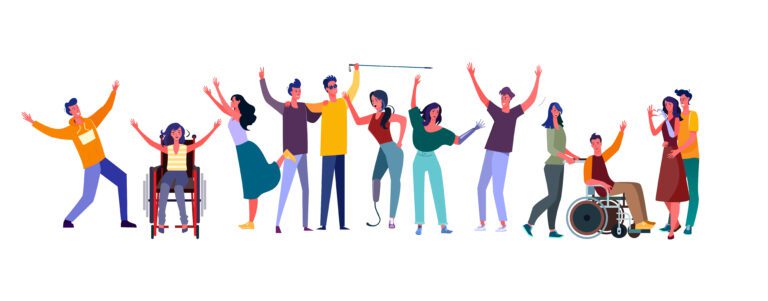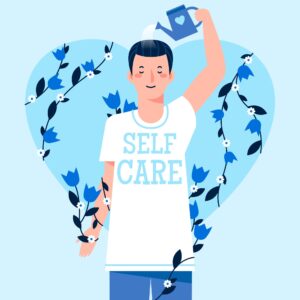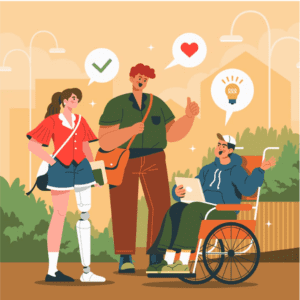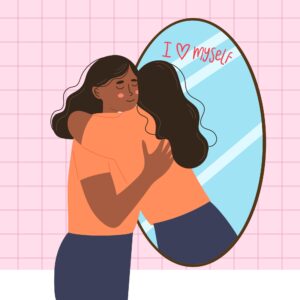Navigating Disability Life: Insights and Support for Living a Fulfilling Life with Disabilities
Learn valuable insights and strategies for managing disability life, and discover essential tips to help you thrive and find fulfilment while living with psychosocial, intellectual or dual disabilities in Australia.

Navigating life with psychosocial, intellectual or dual disabilities presents various unique challenges, but also creates opportunities for personal growth, empowerment, and fulfilment.
This extensive guide explores the various aspects of disability life, such as accessing tailored support systems, fostering social connections, and employing adaptive strategies to overcome daily challenges. As we delve into the intricacies of living with disabilities, our goal is to empower and uplift you, enabling you to embrace the joys and triumphs of your unique journey with unwavering confidence.
Accessing Tailored Support Services
One of the most critical aspects of disability life is finding and accessing tailored support services designed to accommodate specific needs. Services such as the National Disability Insurance Scheme (NDIS) in Australia provide essential support to people with disabilities, helping them achieve their goals and live a fulfilling life. Some key services and resources to consider include:
- Assistive Technology: Utilising assistive devices and tools, like communication aids, mobility equipment, or adaptive software, can significantly enhance independence and daily functioning for individuals with disabilities.
- Therapy and Counselling: Receiving appropriate therapy and counselling services can improve mental and emotional wellbeing, coping skills, and overall quality of life. Services may include occupational therapy, speech therapy, physiotherapy, or psychological counselling.
- Support Coordination and Case Management: Support coordination and case management services, like those offered by The Disability Company, can help to streamline access to the appropriate resources, assist with NDIS plan management, and provide expert guidance for navigating the complex disability support landscape.
Fostering Social Connections and Inclusivity
Establishing and nurturing social connections is vital for individuals with disabilities, as these connections contribute to emotional wellbeing, self-esteem, and a sense of belonging. Encourage inclusivity and social enrichment by considering the following:
- Joining Clubs and Interest Groups: Participating in clubs and interest groups for people with disabilities, or inclusive groups that accommodate diverse needs, can create connections and foster a sense of community. These may include sports clubs, support groups, or local hobby clubs.
- Inclusive Education and Workplace: Accessing inclusive educational and work opportunities promotes equality, social integration, and personal growth. Advocating for accessible workplaces and educational institutions ensures individuals with disabilities can thrive in their chosen fields.
- Building Strong Support Networks: Developing robust support networks, including family, friends, and professionals, fosters a nurturing and empowering environment. This, in turn, helps improve coping mechanisms and resilience when faced with life’s challenges.
Adaptive Strategies for Overcoming Daily Challenges
Implementing adaptive strategies can make daily tasks more manageable and enjoyable for individuals with disabilities. Adopting these strategies can lead to increased independence and satisfaction in their routines. Some effective adaptive strategies include:
- Time Management and Organisation: Utilising organisational tools like calendars, planners, and to-do lists can help individuals with disabilities manage their time, set priorities, and stay on track with daily responsibilities.
- Home Modifications: Making home modifications, such as installing grab bars, wheelchair ramps, or voice-activated devices, can significantly enhance accessibility and comfort within the living environment.
- Mindfulness Techniques: Practising mindfulness techniques, such as deep breathing, meditation, or journaling, can help in managing stress, enhancing self-awareness, and cultivating emotional resilience.
Promoting Health and Wellness
Maintaining good health and wellness is essential for everyone, including individuals with disabilities. Emphasising health-promoting habits can improve overall wellbeing, emotional resilience, and daily functioning. Key health-focused areas to consider are:
- Physical Activity: Participating in regular exercises adapted for diverse needs promotes physical fitness, boosts mood, and improves overall health. This may include adaptive sports, yoga, or other suitable physical activities.
- Balanced Nutrition: Prioritising a balanced and nutritious diet can help manage energy levels, maintain overall wellbeing, and prevent potential health complications. Engaging in cooking classes or seeking guidance from a dietician can be valuable for fostering healthy eating habits.
- Sleep Hygiene: Good sleep hygiene plays a significant role in physical, emotional, and cognitive wellbeing. Ensuring a consistent sleep schedule, establishing a calming bedtime routine, and making adjustments to sleep environments tailored for individual needs can contribute to improved sleep quality and overall health.
Embracing Advocacy and Self-Awareness
Self-advocacy and awareness are crucial for empowering individuals with disabilities and ensuring their voices are heard. By understanding their rights, communicating their needs, and actively participating in decisions that affect their lives, they can thrive and realise their full potential. Strategies for embracing advocacy and self-awareness include:
- Knowledge of Rights and Legislation: Becoming familiar with disability rights and relevant legislation, such as the Disability Discrimination Act in Australia, can be vital in advocating for equal treatment and upholding personal rights.
- Developing Communication Skills: Building strong communication skills enables individuals with disabilities to effectively express their needs, desires, and boundaries. Speech therapy, social skills training, or assertiveness workshops may be beneficial in fostering effective communication.
- Seeking Role Models and Mentors: Drawing inspiration from role models or engaging in mentorship programs with others who share similar lived experiences can inspire self-confidence, provide guidance, and facilitate personal growth.
At The Disability Company, we provide comprehensive disability services in Melbourne, Australia to support individuals with disabilities in all aspects of their lives. Our services are designed to help individuals with psychosocial, intellectual, and dual disabilities to access the resources and support they need to achieve their goals and live their best lives. Let’s assist you in navigating the complexities of disability life while empowering personal growth and wellbeing.
Reach out to us today to start your journey towards a vibrant, fulfilling, and empowered disability life in Australia! Contact us today on 1300 897 848.
Check more events and stories

Creating a Balanced Routine: Daily Tips for Individuals with Chronic Conditions
This article outlines strategies for individuals with chronic conditions to create a balanced daily routine, focusing on self-care, goal-setting, rest, and meaningful activities to enhance well-being.

The Benefits of SIL Housing for Individuals with Disabilities
Explore the numerous benefits of Supported Independent Living (SIL) housing for individuals with disabilities, highlighting how it fosters independence, personalized support, community integration, and overall quality of life.

Building a Supportive Network: Finding Community as a Person with a Disability
Learn how to build a strong and supportive network in our latest article, designed for individuals with disabilities. Discover practical tips for connecting with communities, accessing resources, and enhancing your quality of life through meaningful relationships!

Exploring Adaptive Sports and Recreation Opportunities in Australia
Discover empowering opportunities like wheelchair basketball, adaptive cycling, and more that promote inclusion and achievement

Self-Care Strategies for Individuals with Disabilities and Chronic Conditions
Discover practical self-care strategies tailored to the unique needs of individuals with disabilities and chronic conditions. From prioritizing rest and nutrition to cultivating emotional well-being and setting boundaries, empower yourself to enhance your overall quality of life and wellness journey.

How Aged Clients Can Benefit from In-Home Care
How Aged Clients Can Benefit from In-Home Care in Victoria More Australians are choosing to live at home to maintain their independence as they age.


